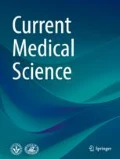Summary
This study is aimed to evaluate the quality of life (QOL) for individuals living with human immunodeficiency virus (HIV)/acquired immunodeficiency syndrome (AIDS) in Hubei province-central China by using WHOQOL-BREF instrument (Chinese version). One hundred and thirty six respondents (HIV/AIDS individuals) attending out-patient department of Chinese Center for Disease Control and Prevention (Chinese CDC) were administered a structured questionnaire developed by investigators. QOL was evaluated by using WHOQOL-BREF instrument (Chinese version). The results showed that the mean score of overall QOL on a scale of 0–100 was 25.8. The mean scores in 4 domains of QOL on a scale of 0–100 were 82.9 (social domain), 27.5 (psychological domain), 17.7 (physical domain) and 11.65 (environmental domain). The significant difference of QOL was noted in the score of physical domain between asymptomatic (14.6) and early symptomatic individuals (12) (P=0.014), and between patients with early symptoms (12) and those with AIDS (10.43) (P<0.001). QOL in psychological domain was significantly lower in early symptomatic (12.1) (P<0.05) and AIDS patients (12.4) (P<0.006) than in asymptomatic individuals (14.2). The difference in QOL scores in the psychological domain was significant with respect to the income of patients (P<0.048) and educational status (P<0.037). Significantly better QOL scores in the physical domain (P<0.040) and environmental domain (P<0.017) were noted with respect to the occupation of the patients. Patients with family support had better QOL scores in environmental domain. In our research, QOL for HIV/AIDS individuals was associated with education, occupation, income, family support and clinical categories of the patients. It was concluded that WHOQOL-BREF Chinese version was successfully used in the evaluation of QOL of HIV/AIDS individuals in Chinese population and proved to be a reliable and useful tool.
Similar content being viewed by others
References
Lesserman J, Perkins DO, Evans DL. Coping with the threat of AIDS: the role of social support. Am J Psychiatr, 1992,149:1514–1520
Namir S, Wolcott D, Fawzy F, et al. Implications of different strategies for coping with AIDS. In: Temoshack L and Baum A (Editors.) Psychological perspectives on AIDS. Hillsdales NJ: Erlbaum Associates, 1990,173–190
Rabkin JG, Remien R, Kattoff L, et al. Residence in adversity among long time survivors of AIDS. Hosp Comm Psychiatr, 1993,44:162–167
Friedland J, Renwick R, McColl M. Coping and social support as determinants of quality of life in HIV/AIDS: AIDS Care, 1996,8:15–31
McDowell M, Newell C. Measuring health: A guide to rating scales and questionnaires. New York: Oxford University Press. 1987
Cleary PD, Fowler JF Jr, Wiessman J, et al. Health-related quality of life in persons with acquired immune deficiency syndrome. Med Care, 1993,31:569–580
Wolfensberger W. Let’s hand up “QOL” as a hopeless term. In: Goode D (Editor). Quality of life for persons with disabilities: International perspective and issues Cambridge, MA: Brookline Books, 1994,285–321
Watchel, T, Piette, J, Mor V, et al. Quality of life in persons with human immunodeficiency infection: measurement by the medical outcomes study instrument. Ann Int Med, 1992,116:129–137
Fanning M. Validation of a quality of life instrument for patients with HIV infection. Health and Welfare: Canada. 1994:NHRDP 6606-4334-AIDS
Susan S, Mohr J, Justis JC, et al. QOL in patients with human immunodeficiency virus infection: impact of social support, coping style and hopelessness. Int J STD AIDS, 1999,10:383–391
Nelson CB, Lotfy M. The World Health Organization’s WHOQOL-BREF quality of life assessment: psychometric properties and results of the international field trial. WHO (MNH/MHP/99.7), 1999
Bastardo YM, Kimberlin CL. Relationship between Quality of life, social support and disease related factors in HIV infected persons in Venezuala. AIDS Care, 2000, 12:673–684
Ware JE Jr, Sherbourne CD. The MOS 36-item short-form health survey (SF 36) I. Conceptual framework and item selection. Med Care, 1992,30:473–483
World Health Organization, WHO Quality of life-BREF (Chinese version) retrieved at http://www.who.int/substance_abuse/research_tools/en/chinese_whoqol.pdf
Testa MA, Simonson DC. Measuring quality of life in hypertensive patients with diabetes. Postgrad Med J, 1988,64(Suppl 3):50–58
Copfer AE, Ampel NM, Hughes TE, et al. The use of two measures of health related quality of life in HIV infected individuals: a cross sectional comparison. Qual Life Res, 1996,5:281–286
Cunningham WE, Mosen DM, Hays RD, et al. Access to community-based medical services and number of hospitalizations among patients with HIV disease: are they related? J Acquir Immune Defic Syndr Hum Retrovirol, 1996,13:327–335
Mkangara OB, Nie S, Wang C, et al. Epidemiology of Immuno-deficiency virus and Quality of life for the people living with HIV/AIDS in China. J Huazhong Univ Sci Technol [Med Sci], 2008,28(2):230–233
Author information
Authors and Affiliations
Corresponding author
Rights and permissions
About this article
Cite this article
Mkangara, O.B., Wang, C., Xiang, H. et al. The univariate and bivariate impact of HIV/AIDS on the quality of life: A cross sectional study in the Hubei Province-Central China. J. Huazhong Univ. Sci. Technol. [Med. Sci.] 29, 260–264 (2009). https://doi.org/10.1007/s11596-009-0226-x
Received:
Published:
Issue Date:
DOI: https://doi.org/10.1007/s11596-009-0226-x



